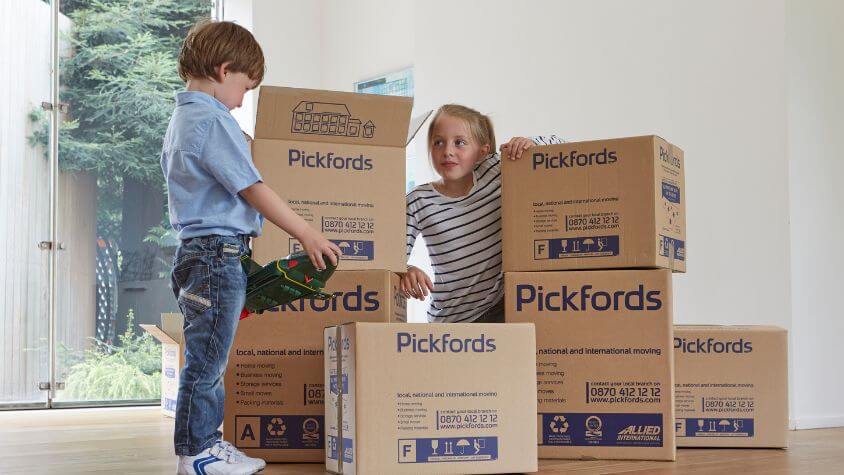Six tips to make your upcoming removal more sustainable
Moving to a new home or office is an exciting time, but it can also have a big environmental impact. Traditional moving practices generate an enormous amount of waste and contribute to carbon emissions, with discarded packing materials, unnecessary trips and non-recyclable plastics being some of the major problems. However, by incorporating eco-friendly strategies, it's possible to reduce the waste and carbon footprint associated with your move.
In fact, with the growing awareness of climate change and its effects, the importance of eco-friendly moving practices is greater than ever. Consider that the transportation sector, including removal companies, accounts for around 24% of global CO2 emissions, while the average household move can generate over 60 kilograms of waste, mostly from single-use packing materials. With environmental concerns on the rise, it's critical that we rethink how we move to ensure we're not damaging the planet in the process.
In this blog, we'll explore various sustainable moving practices that help minimise the environmental impact and offer practical tips for executing your upcoming eco-friendly removal.
1. Plan, plan, plan
When moving, rushed decisions can often create unnecessary waste. Planning ahead allows you to make conscious choices that prioritise sustainability. Early preparation gives you enough time to gather eco-friendly packing materials, declutter responsibly and reduce the amount of belongings you need to move.
By preparing early, you can avoid using wasteful materials such as polystyrene foam or plastic, which are responsible for about 40% of global plastic waste.
It will also help you identify green removal companies and you will have time to find recyclable packing materials, rather than relying on single-use boxes for example.

2. Declutter beforehand
The fewer items you move, the less packing material and transportation you'll need. A well-organised decluttering process not only lightens your load but also reduces the environmental impact of your move.
Consider sorting your belongings into categories such as 'donate', 'sell' and 'recycle'.
- Donate: Many charities will gladly accept used clothing, furniture and household items. By donating, you can ensure your unwanted possessions find a new home. This prevents these items from ending up in landfill, where they contribute to the estimated 22 million tonnes of household waste produced annually in the UK alone.
- Sell: Online platforms or local car boot sales are great options for selling items you no longer need. It's also a way to recoup some of your moving expenses.
- Recycle: For items that aren't suitable for resale or donation, look for recycling centres that accept materials such as electronics, batteries or plastics. Proper disposal is key to reducing waste - electronic waste accounts for 70% of toxic waste in landfills.

3. Opt for reusable packing materials
Packing is often one of the most wasteful aspects of moving, but there are eco-friendly alternatives that can significantly reduce single-use materials.
- Cardboard boxes: Opt for recycled boxes. If every household in the UK reused just one cardboard box, it would save 18 million trees annually.
- Old blankets and towels: Instead of bubble wrap, use household items like towels and blankets to protect your fragile items.
- Biodegradable packing peanuts: These are made from materials like cornstarch and can be composted, unlike traditional polystyrene foam, which can take over 500 years to decompose.

4. Choose a green moving company
Many moving companies are evolving to provide sustainable services, making it easier to reduce your move's carbon footprint. Look out for companies that:
- Use fuel-efficient or electric vehicles to reduce carbon emissions.
- Offer recycled or reusable packing materials.
- Have green certifications like carbon-assessed operations or commitments to sustainable practices.
By choosing an eco-friendly moving company, you can minimise the transportation-related CO2 emissions that come from moving trucks. For example, electric moving trucks can reduce emissions by up to 30% compared to traditional vehicles.

5. Reduce the number of trips
Transportation is a major contributor of the environmental impact of moving, so reducing the number of trips can have a big effect.
- Efficient packing: Packing boxes tightly and using all available space can help reduce the number of trips needed to transport everything.
- Consolidate moves: You can try to consolidate your belongings to save multiple trips, thereby cutting down on vehicle emissions.
Considering that a typical moving vehicle can emit up to 10 metric tonnes of CO2 per year, reducing trips can make a significant impact on your move's carbon footprint.

6. Repurpose and upcycle materials post-move
After the move, don't just throw away your packing materials. Instead you can:
- Reuse boxes: Boxes can be repurposed for storage or future moves. Reusing just one tonne of cardboard can save 17 trees.
- Upcycle: Get creative with leftover materials by turning them into storage bins or organisational tools.
- Recycle: If your boxes are damaged or can't be reused, ensure they're properly recycled. Cardboard is one of the most recyclable materials, with a 70% recovery rate.
- Ask your removal company to collect them: After your move, contact your removal company and see if they can come and collect your empty boxes.

Sustainable moving practices are not just a trend but a necessity in today's world, where climate change is accelerating and waste production is skyrocketing.
By considering and implementing these practice, you can significantly reduce the environmental footprint of your move. These small steps lead to a cleaner planet and help set the stage for a more sustainable lifestyle in your new home. Be a part of the solution to a growing global problem!